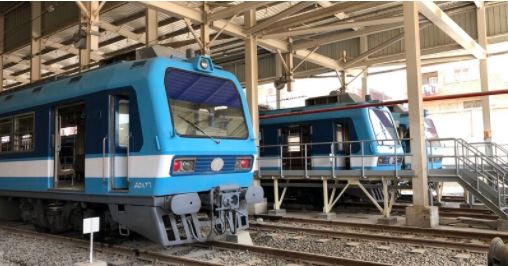The state company NAT (National Authority for Tunnels), which is responsible for managing the Cairo metro, has appointed CAF to refurbish 23 units which currently run on line 1 of the Egyptian capital city’s metro network. The project involves the complete refurbishment of the metro units, refurbishment of the new Kozzika maintenance depot, and maintenance of the units for a term of two years. The contract is worth almost €180M and will be financed with Spanish funds from the FIEM (Enterprise Internationalisation Fund).
The units will be refurbished at the customer’s facilities in Kozzika, a newly built depot connected to the Cairo Metro Line 1 network. This will also be fitted out by CAF as part of the scope of this contract for this refurbishment work and subsequent train maintenance.
The scope of the work which will be performed on the units will include upgrading the main systems and items associated with train availability and safety, including the traction system under CAF Power & Automation integration, as well as improving other areas which are more concerned with unit aesthetics and passenger comfort, with this including the installation of air-conditioning equipment on the units.
The project will be completed in partnership with Mitsubishi Corporation. This is the company that supplied the trains originally, which has also signed a MoU with CAF and NAT for the future refurbishment of the Japanese trains that currently provide service in Line 2 of the Cairo Metro system. This confirms the long-standing track record of commercial cooperation of the CAF Group with the Japanese company.
The Cairo metro network, inaugurated in 1987, is the oldest network in Africa and the Middle East, with three lines operating to date, and a fourth line under construction. Specifically, line 1, which the trains to be refurbished run on, is comprised of 35 stations on a 44-kilometre route that crosses the Egyptian capital city from the El Marg district to the Helwan area, in the southern part of the city.
Egypt is currently pursuing an ambitious plan to expand and improve its transport infrastructures and systems, thereby transforming the country into a growing market where a great deal of business opportunities have opened up. This situation, coupled with FIEM funds financial support for this project, is testament to the effort to promote Spanish collaboration and investment on the African continent. One of this initiative’s goals is to improve national company competition and technology in such an important sector for country modernisation as that of passenger transport systems.

